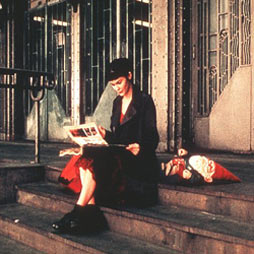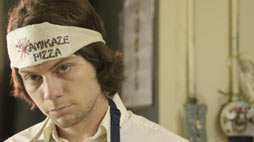By Mark Bauer/editor-in-chief
I like cookies. And in my limited experience with cookie jars, I have come to understand that they traditionally serve as mere countertop decor.
But not in my house—if the cookie jar isn’t full, you better believe plans are being made to re-fill it. Remember the song about cookies being taken from the cookie jar? It’s in honor of me.
I know this is old news, but three years ago Sesame Street opted out of the cookie business. Executives decided that Cookie Monster, the blue puppet who would only crumble cookies in his mouth and not eat them (kind of like presidents who don’t inhale), would expand his diet to include veggies and other nutritional supplements. Their reasoning was that Cookie Monster’s addiction to cookies was modeling gluttony, as well as poor eating habits.
Their goal was to instill good dietary routines and to bore the tar out of children. Who wants to see a cookie monster eat things other than cookies? Not me. That’s bad television.
But despite the fact that I thought they were making a bad move, the idea behind the decision isn’t what surprised me—it was the decision itself.
For years, people have argued and will continue to argue that television, movies and provocative song lyrics don’t influence young people one way or another. But if that’s the case, why isn’t Cookie Monster eating only cookies?
Of all the pop icons promoting unhealthy lifestyles, Cookie Monster’s image was the only one changed out of concern for our children’s upbringing.
Sex, violence, greed and vulgarities permeate our idea of “art” and “entertainment.”
Yet we are shocked when we discover that 1 in 4 teenage girls have contracted an STD, or that, yet again, another group of teenagers filmed a beating and posted the video on the Internet.
Perhaps our social ills are a manifestation of a greater problem, one that doesn’t cease to exist simply by ignoring it and turning away.
Healing begins upon recognition of brokenness. AA refers to it as “admitting you have a problem.”
Cookie Monster’s was an obvious vice.
What’s ours?




























